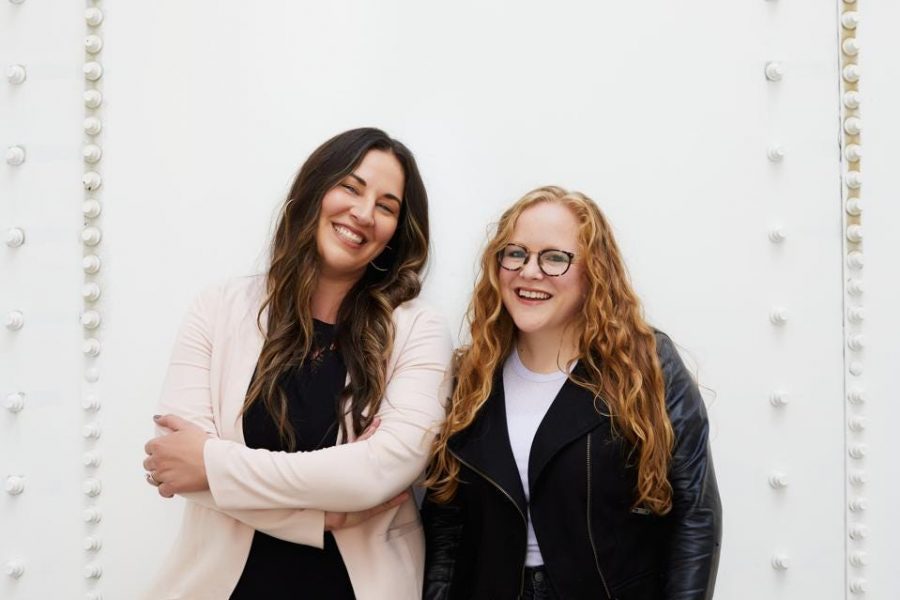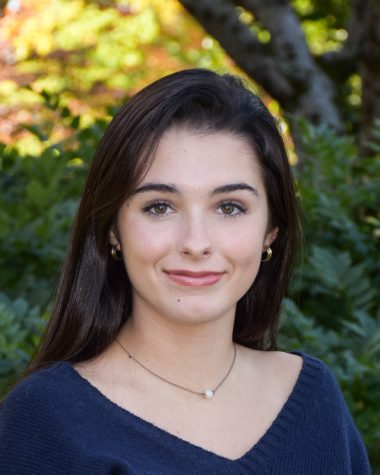Q&A: Quinn Fitzgerald ’07, Co-Founder of Flare
The Gator recently sat down with alum and co-founder of Flare, Quinn Fitzgerald ’07, to learn more about her work and time at the School.
What is Flare?
As a survivor-founded technology-enabled safety jewelry brand, Flare empowers wearers to get out of unsafe situations, offering a lifeline and call for backup at the push of a hidden button.
Flare is technology-enabled safety jewelry committed to giving wearers confidence and agency. Flare’s line of beautiful and stylish jewelry offers a solution for anyone who may find themselves in not only uncomfortable or unsafe situations, but also those ‘gray area’ situations where there is potential for a situation to get dangerous – you really aren’t sure, but you have a bad feeling. A product that understands how easily dangerous situations can escalate, Flare aims to give power back to its wearer with safe and discreet control.
Flare offers options to act in any level of the situation—whether that’s getting away from unwanted attention or calling for backup. With Flare, you can take control, get help, or exit situations before they become dangerous. A hidden button on the jewelry, connected to your phone through an iOS app, provides three options for you to discreetly take action and control the outcome that is right for you.
- Press and hold to text your friends or family. Your GPS location and a message will instantly be sent to 5 pre-selected contacts, and all recipients can speak to each other in a group text.
- Tap once to get an incoming call so you can leave. Your excuse to exit before things escalate is one of ten pre-recorded calls that sounds real.
- Connect with 911. Turn on this feature to send your GPS location and a message to a 911 dispatcher that will help you immediately. Launched in response to COVID-19 because your friends or family may not be able to leave their homes, this feature is optional for a reason: we know that calling the police is not right for everyone or every situation.
What inspired you to create flare?
As survivors, it’s personal: we know too well the impact that assault and other traumatic, unexpected experiences have on people’s lives. Flare is for travelers, new college students, online daters, those in unhealthy relationships or unsafe home situations, anyone who has had to question another person’s intent towards them, people who take public transit, gig economy workers, people with health concerns or social anxiety, and everyone in between. Safety does not have a gender or an age. For everyone, Flare enables confidence acting earlier in the moment without the threat of making the situation worse; Flare marks the end of second-guessing; Flare empowers action.
Flare was developed with feedback from thousands of people who shared their own experiences with us. The product is both an iOS mobile application and a technology module inside an expanding line of 22 different styles of jewelry (including new gender-neutral and athletic styles coming this winter). The brand has grown more than 55x in the last year, proving the very real and widely-felt need for such a life-altering accessory at this very moment in our world.
Did your time at the School help you with college and starting your own company?
Absolutely. At Brimmer, I learned the value of hard work, perseverance, and using your voice to stand up for what you believe in. I didn’t have to choose between being an artist or an athlete at Brimmer—instead, I could pursue both. As a founder, you have to serve in many roles and think across many different angles to connect all the pieces. You use all the parts of your brain!
What is your favorite memory from the School?
Wow, it’s so hard to pick one single memory. When I think back on my time at Brimmer, what I value most was being able to not just grow academically but as a whole person. I felt like there was space for me to explore different passions, advocate for what I believed in, better understand my own values, and learn through exploring different cultures and ideologies. I was the first person at my college to design my own major in conflict resolution, and it was a guest lecturer at Brimmer who first taught me that conflict resolution was even an area that someone could study.
What advice in terms of safety (other than wearing flare) would you give women who are headed off to college?
We can’t talk about Flare without addressing how terrible it is that a product like this needs to exist. Historically, safety companies perpetuated victim-blaming and claimed to “solve safety.” Telling us to hold back, be quiet, avoid events, adjust our goals. Giving us whistles and pepper spray, which often do more harm than good. That’s incredibly damaging. The onus isn’t on women, the LGBTQ+ community, and other marginalized communities.
My advice is that no one thing will make you safe – instead, you need to invest in as many tools as you can for your own safety – invest in devices to help you, but also invest in finding good friends who will have your back, in listening to how your body feels and reacting early when something feels off, and in learning ways to speak up for yourself and for others when it looks like they need an interruption. Invest in learning some self-defense and practice having conversations around consent – especially how to not consent in a way you are confident in. Talk to people openly about safety how what you are comfortable with.
What are your future plans for flare?
We are launching a new leather band style in November to increase the styles we offer to better match the diverse needs within safety – and we will continue to do so. We also will be launching an Android app in 2022 and more features. Our vision is to democratize personal safety – making it more accessible and using technology to continue to provide our users with more customizable safety features to give you increasing optionality. It’s all about agency.
Editors’ Note: The author is a cousin of Quinn Fitzgerald ’07.






















































